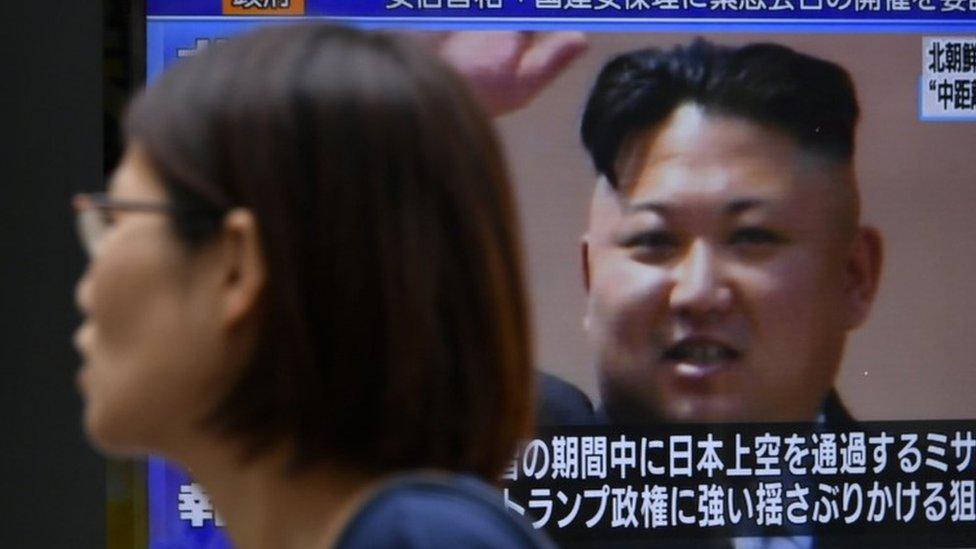N Korea nuclear crisis: China border town unruffled
- Published
The China–North Korea Friendship Bridge is an important trade link between the countries
Dandong is a good place to ponder China's role in the North Korean nuclear crisis. First off, no-one's that bothered.
In a city of more than 800,000 people, living almost within touching distance of North Korea, Sunday's underground test - as well as the claims that it was a thermonuclear detonation - have raised barely a murmur.
Tourists are still out on the promenade along the Chinese bank of the Yalu River.
Street food vendors are busy frying squid and roasting millet buns on their barbecues late into the evening.
"What test?" one of them replied, when asked for her reaction.
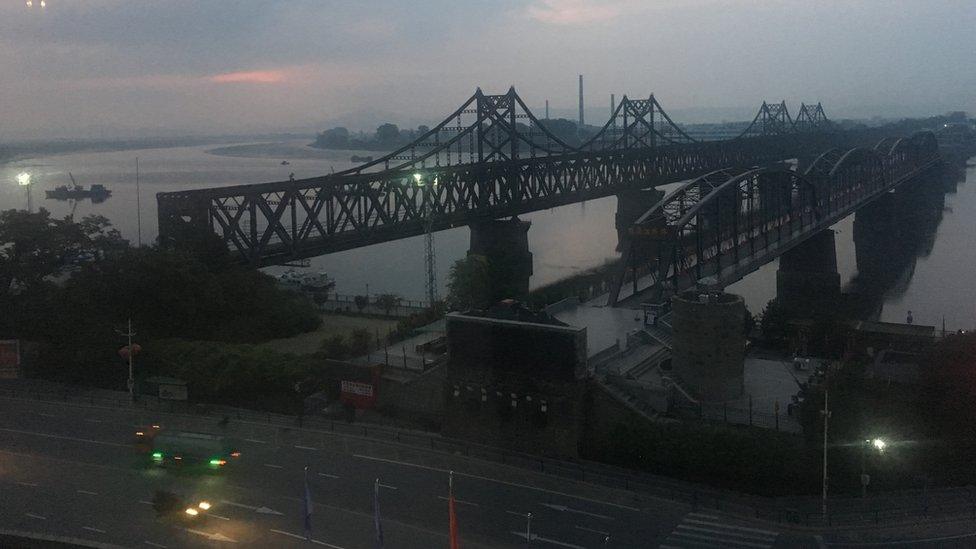
The bridge over the Yalu River is a key supply route for North Korea
Dandong: North Korea's most surprising border
In the riverside park, where groups of elderly Dandongers gather to play traditional Chinese music or to dance, there is at least a glimmer of mild concern.
"I am worried about the situation," one woman says, taking a break from gyrating with a paper fan whilst wearing reflective jam-jar glasses and a faded USA T-shirt.
But she adds: "I don't believe there will be war because China and North Korea are always friends."
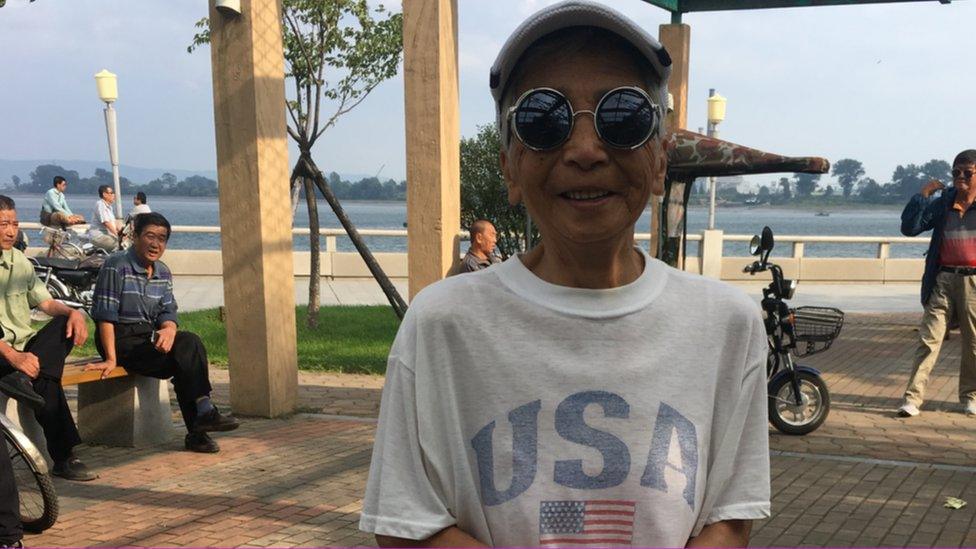
"China and North Korea are always friends," this Dandong resident says
The sense of complacency here on North Korea's northern border mirrors what is often reported from its southern flank.
Like South Korea, China is not prone to react in surprise - as the outside world sometimes is - when North Korea simply acts in accordance with a long proclaimed strategy.
The first overflight of Japanese territory by a North Korean rocket was in 1998. The first North Korean underground nuclear test took place in 2006.
The speed of advancement may have been considerably stepped up, but - viewed from China - it is just business as usual.
The other striking thing about the perspective that a visit to Dandong gives you is the simple fact of the proximity itself.
Unlike the DMZ in the south, this is not a closed border.
You could swim from this city's waterfront to the North Korean side of the Yalu in a matter of minutes.
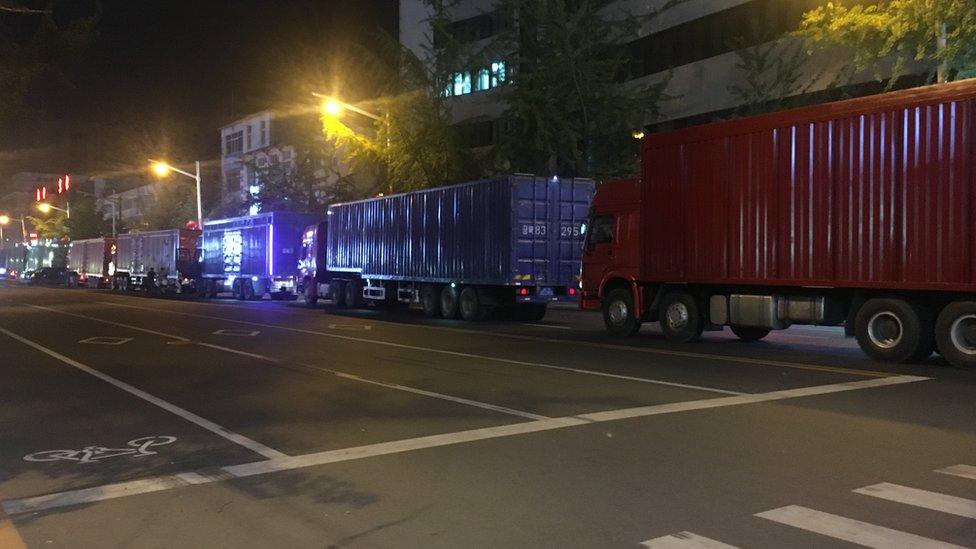
North Korean lorries queuing up to get into Dandong's customs zone
China has improved the security fencing along large stretches of the 1,400km-long (870 miles) boundary in recent years.
But in other parts there's no fence at all and with the ice thick enough in winter to simply walk across, refugees often do exactly that.
China may possibly still see some strategic advantage in keeping the North Korean economy afloat and its totalitarian system intact.
Pyongyang is after all a historic ally of Beijing as well as a modern-day thorn in the side of an adversary that they both share: Washington.
But it is more likely that China keeps the trade flowing across the old Dandong bridge because it genuinely fears the consequences of not doing so.
Pushing North Korea to the brink of regime collapse would risk bringing chaos and instability flowing into China's north-east.
It would also create the wider regional security challenge of a failed state with unsecured nuclear weapons.
And regardless of its own interests, Beijing simply doesn't see the logic in the US argument anyway.
Threatening North Korea's ruling elite with action likely to spell their doom, it argues, would increase - not diminish - their incentive to develop nuclear weapons as the ultimate security guarantee.
North Korea, as both China and Russia like to point out, has learned well the lesson of Iraq and Libya - states that either didn't possess nuclear weapons or had bargained them away.
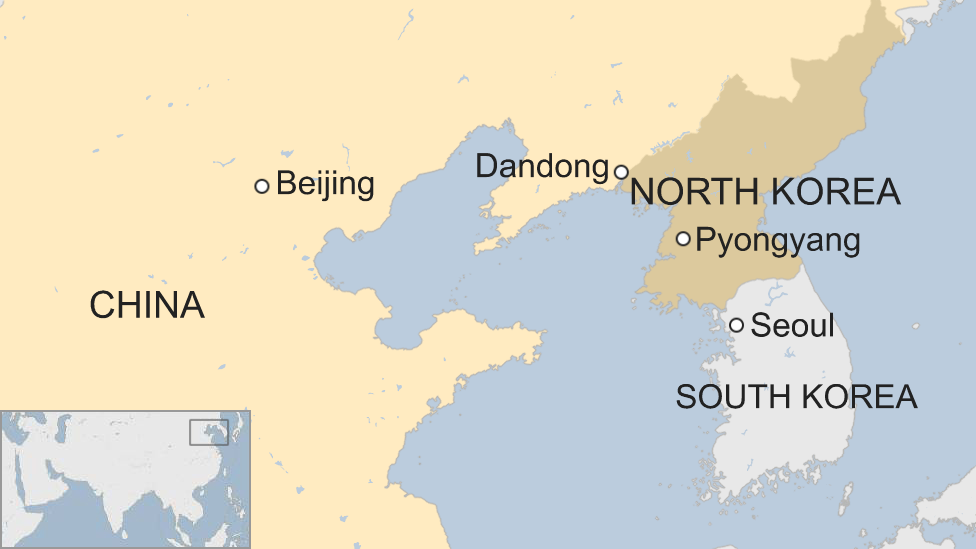
On the outskirts of Dandong, a large oil storage depot is perhaps the most visible symbol of North Korea's dependence on China.
Much of the crude oil it needs to keep its military moving and its economy sputtering along is pumped across the border from here.
The US argues that all China needs to do to force North Korea into a nuclear climbdown is to turn off the tap.
China sees things very differently and, when we visited the depot, there were signs of activity late into the night.
China may well be beginning to question whether the prospect of a nuclear-armed neighbour is in its interests, but it believes that it is the US, as the root cause of North Korea's insecurity, that really holds the key.
So far, the oil keeps flowing.
"America has forced North Korea into this," laments one old man, taking in the music in Dandong's park.
"Everybody wants the denuclearisation of the Korean peninsular but because of the Americans' behaviour, it can't be achieved."
- Published5 September 2017
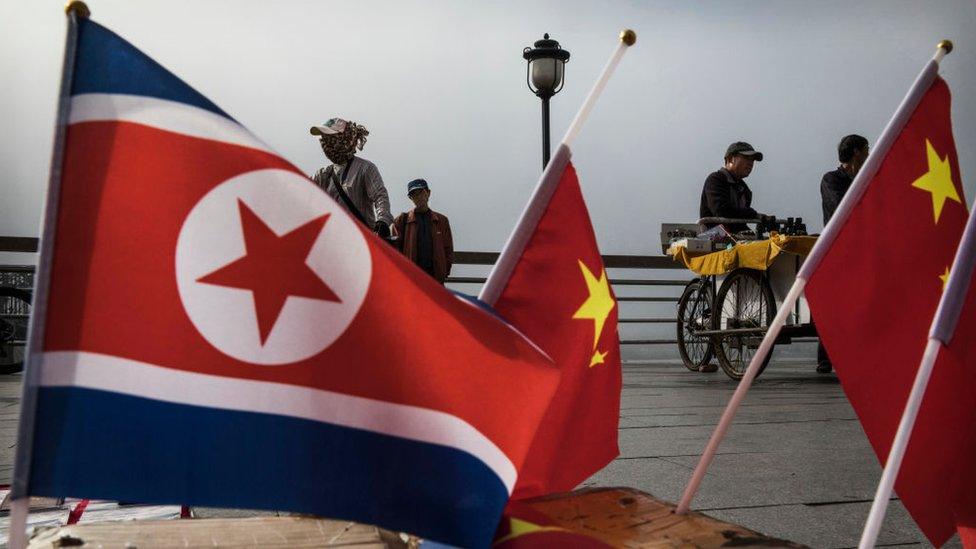
- Published3 September 2017
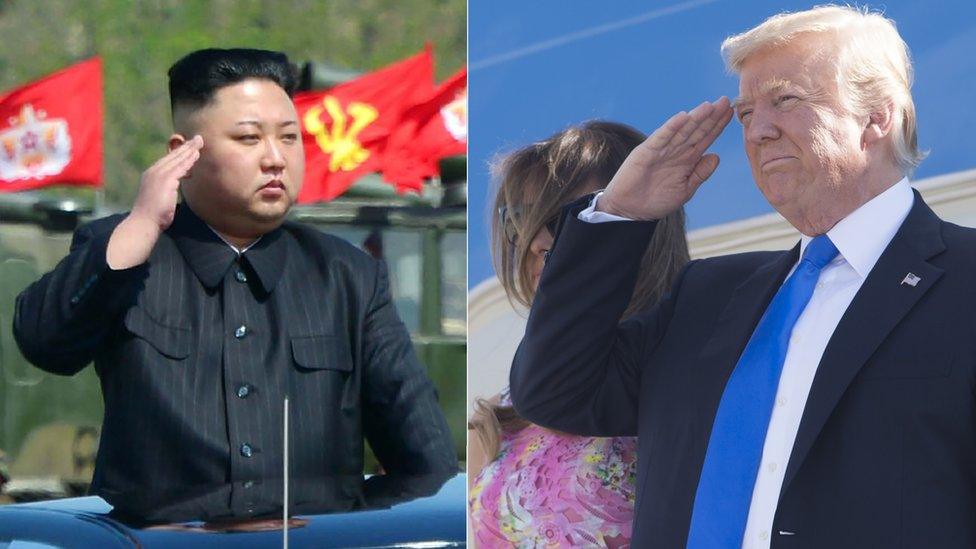
- Published29 August 2017

- Published29 August 2017
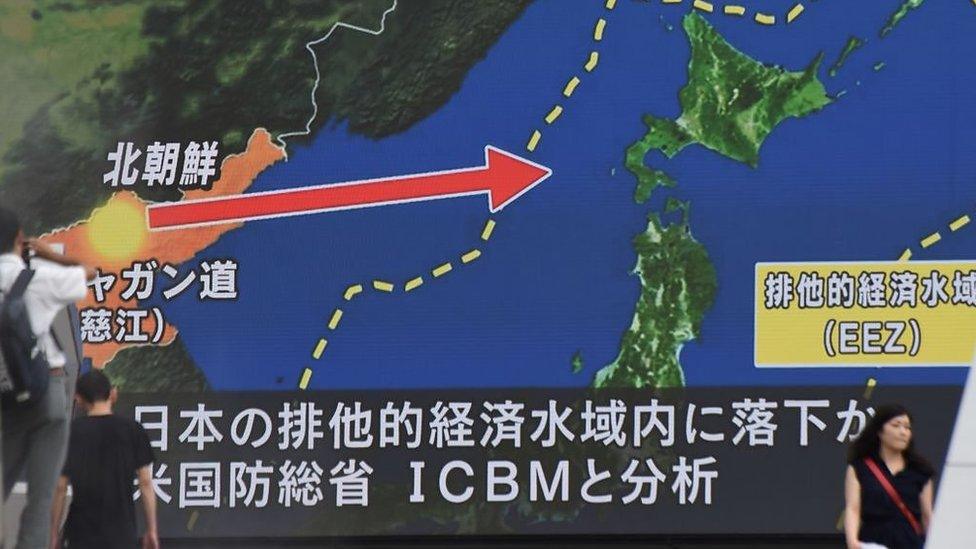
- Published29 August 2017
